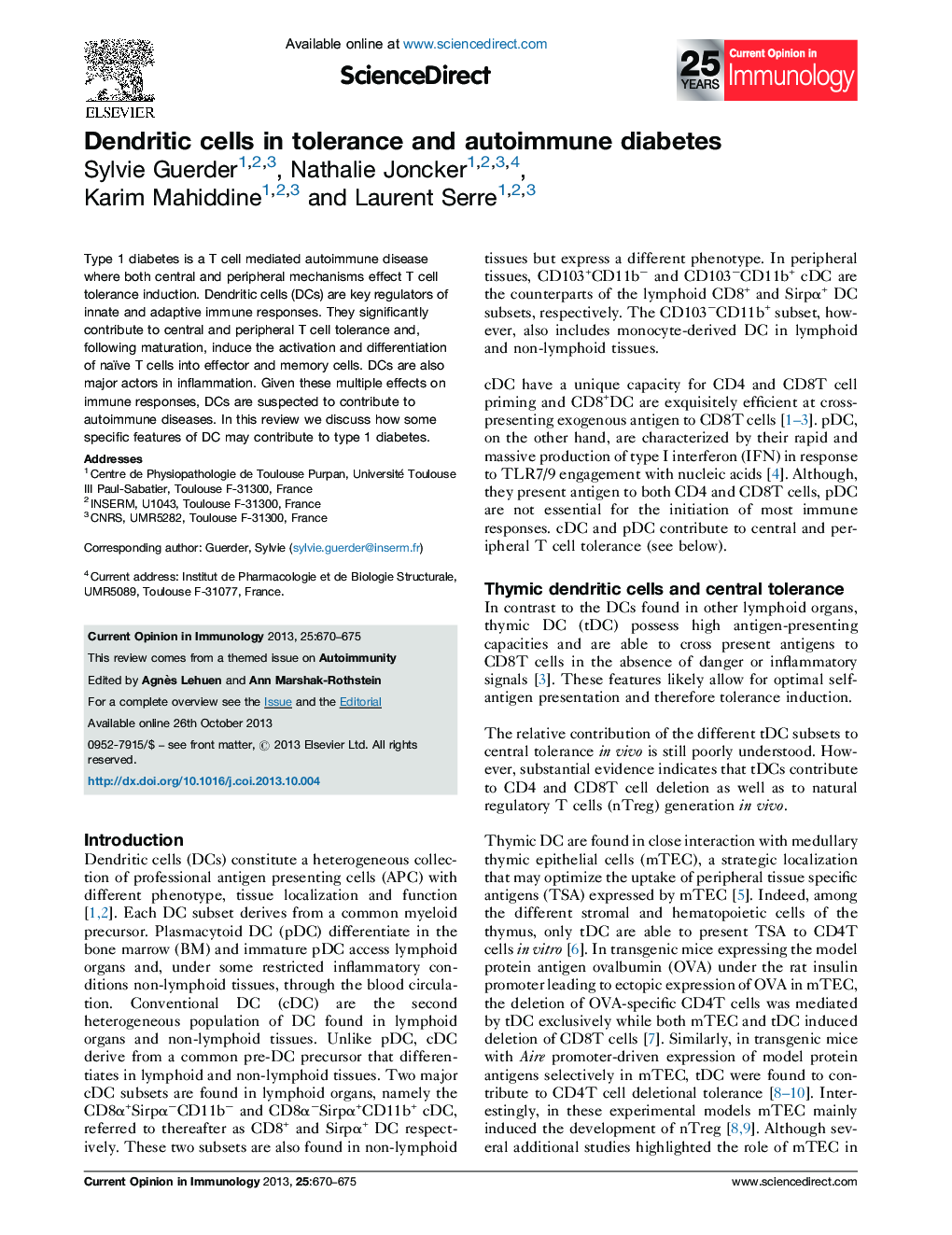| کد مقاله | کد نشریه | سال انتشار | مقاله انگلیسی | نسخه تمام متن |
|---|---|---|---|---|
| 3345862 | 1215751 | 2013 | 6 صفحه PDF | دانلود رایگان |

• Defective central and peripheral mechanisms of T cell tolerance contribute to diabetes.
• Expression of the protease TSSP by thymic DC impairs central CD4 T cell tolerance.
• Unusual peptide binding to MHC class II molecules generates in the periphery neo-self-antigens.
• Early islet inflammation and IFNα production may initiate type 1 diabetes.
Type 1 diabetes is a T cell mediated autoimmune disease where both central and peripheral mechanisms effect T cell tolerance induction. Dendritic cells (DCs) are key regulators of innate and adaptive immune responses. They significantly contribute to central and peripheral T cell tolerance and, following maturation, induce the activation and differentiation of naïve T cells into effector and memory cells. DCs are also major actors in inflammation. Given these multiple effects on immune responses, DCs are suspected to contribute to autoimmune diseases. In this review we discuss how some specific features of DC may contribute to type 1 diabetes.
Journal: Current Opinion in Immunology - Volume 25, Issue 6, December 2013, Pages 670–675